| WELCOME to our fifth quarterly newsletter, rounding up the latest news and events from UNU-MERIT and its School of Governance. We explore the push and pull of international development: innovation through science and entrepreneurship, and governance through public policy analysis. Read on for the full lowdown. | ||
 |
New Course: Impact Assessment of Education Policies How do skills shape innovation? How best to weigh the impact of education policies? This course gives participants the tools and training to carry out impact assessments in various national contexts. Running from 8-19 July 2013, the course looks at primary and tertiary education from micro- and macro-economic perspectives, also covering advanced econometric methods and the educational impact of ICT. By the end of the course, participants will have a thorough grounding in the theory, method and practice of assessing the impact of educational policies. See the video and APPLY NOW! |
|
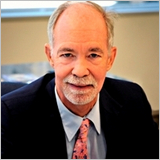 |
New UNU Rector: Dr. David Malone On 1 March 2013, Dr. David M. Malone assumed office for a five-year term as Rector of UNU. In this role, Dr. Malone holds the rank of Under-Secretary-General of the United Nations. Dr. Malone previously served as President of Canada’s International Development Research Centre, a funding agency that supports policy-relevant research in the developing world. As Rector, Dr. Malone is based at UNU Headquarters in Tokyo. See the press release for more details on the appointment and a brief profile of Dr. Malone’s career. |
|
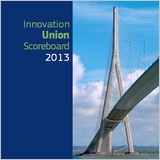 |
Report: Innovation Union Scoreboard 2013 Researchers Hugo Hollanders and Nordine Es-Sadki produced the ‘Innovation Union Scoreboard 2013’ for the European Commission’s DG Enterprise and Industry. The report found that EU innovation performance has improved despite the crisis, although the gap between Member States continues to grow. Sweden and Germany lead the rankings, with Romania and Bulgaria bringing up the rear. Drivers of innovation growth include SMEs, universities and excellent research systems. Download the report and watch the press launch with EU Commissioners Tajani and Geoghegan-Quinn. |
|
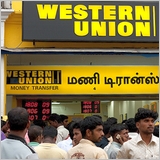 |
Debate: Remittances, Entrepreneurship and Development An International Policy Debate, on 29 May 2013, will gather academics, policy makers, and practitioners to discuss the latest research and policies for remittances, entrepreneurship and development in a globalizing world. The day will focus on three aspects: current evidence on the links between migration, remittances, entrepreneurship and development; the state-of-the-art on related policies and programmes; and policy options to strengthen the development effects in this field. See the programme and REGISTER NOW! |
|
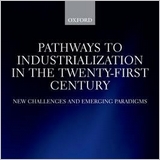 |
Book: Pathways to Industrialization The experiences of Western countries, and more recently the ‘East Asian Tigers’, proved the transformative power of industrialization. But many challenges remain while new ones have arisen: from accelerated technological change, to growing unemployment, to the threat of global warming. These tough conditions require new thinking and new paradigms to guide researchers, policy makers, and international development organizations. This new book, by UNU-WIDER, UNU-MERIT and UNIDO recently launched at the London School of Economics, seeks to fill this knowledge gap. |
|
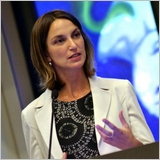 |
PhD Defences: The Final Reckoning Martin Rehm successfully defended his PhD thesis entitled ‘Unified yet separated: Empirical study on the impact of hierarchical positions within communities of learning’. Watch the pre-defence video. Soon after, Lilia Stubrin successfully defended her PhD thesis on ‘High Tech Activities in Emerging Countries – A network perspective on the Argentinean Biotech Activity’. Download the abstract here and see the defence pictures here. |
|
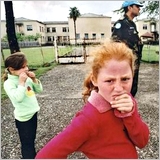 |
Report: Economic and Social Vulnerability in Georgia More than 70 per cent of Georgians are vulnerable, says a new UNDP report co-authored by Dr. Franziska Gassmann. The research covers more than 4000 households across the country, including persons with disabilities, the displaced, and people living high up in the mountains. The report focuses on available household resources, the ability to use resources, and considers exposure to shocks as well as concurrent coping strategies. Watch the video interview and download the report. |
|
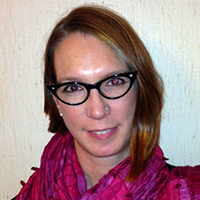 |
MAA Blog: Insights and Ideas In a new series featuring top alumni, we asked Dr. Lina Sonne to share her insights and impressions of the working world. Now based in Mumbai, she speaks of the city’s energy and optimism, as well as the challenges of breaking through years of patriarchy and bureaucracy. We then turned to Dr. Zina Nimeh, who explained why she felt that academic training could enhance her career in policy making. We also featured blogs on urban transport in Mexico and lessons from Lebanon on the future of fragile states. |
|
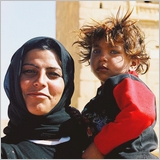 |
Policy Briefs: Moldovan Migrants and the Syrian Diaspora We released two policy briefs for the IS Academy project in January 2013. Brief 12 looks at female Moldovan migrants in Italy, asking if their actual experiences of migration match their earlier expectations. Drawn from 18 interviews, the results highlight the role of migrant networks in information sharing. Brief 13 examines peacebuilding efforts among the Syrian Diaspora in Germany -- a matter of great significance amid the ongoing war. Our recommendations include the promotion of dialogue between factions and more support for the transfer of remittances. |
|
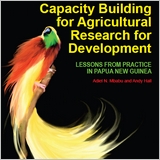 |
Book: Agricultural Research for Development in Papua New Guinea A new book co-edited by Dr. Andy Hall presents a collection of papers on an agricultural capacity building programme in Papua New Guinea. The book fleshes out the conceptual bones of Agricultural Research for Development (AR4D), an emerging practice in the international development community. AR4D aims to directly link investments in research with tangible development outcomes, although the way to achieve this remains a work in progress. This book seeks to fill that gap. The programme was funded by AusAID and ran from 2007 to 2012. |
|
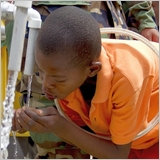 |
Research to Action: Raising the Base of the Pyramid Some 4000 children die every day from lack of clean water, 80 per cent of the developing world has no access to electricity, and 1.6 million people die every year while cooking with kerosene: these are the massive problems at the ‘Base of the Pyramid’. To address these issues, PhD fellow Shuan SadreGhazi is working with UNDP and the Sasakawa Peace Foundation to apply new technologies to age-old problems. Read our blog about his recent visit to Japan and watch our brief video interview for more. |
|
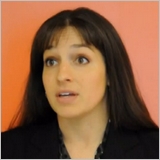 |
Meantime Media Until next time, in early July, please keep an eye on our media channels below. Recent highlights include Dr. Melissa Siegel explaining the challenges for Afghan migration, Dr. Adriaan van Zon on how to 'fix' climate change, and a new visual summary of UNU-MERIT. PODCAST audio channel PREZI visualizations channel YOUTUBE video channel Image credits: Please see links. |
|
- ABOUT US
- RESEARCH
- EDUCATION
- The Graduate School
- PhD Programme
- MSc Programmes
- Capacity Development
- News
- Design and Evaluation of Public Policies (DEPP)
- Design and Evaluation of Innovation Policies (DEIP)
- Evidence-Based Policy Research Methods (EPRM)
- Migration Management Diploma Programme (MMDP)
- Moving the Migration Policy Agenda Forward (MMPAF)
- Online Courses
- Short Courses (Masters)
- Tailor-made programmes
- UNU-MERIT, ITU Academy Training Centre
- Alumni
- Academic Funding
- NEWS
- EVENTS
- PUBLICATIONS
- LIBRARY





